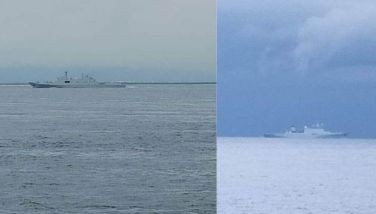+ Follow DEPOSITION Tag
DEPOSITION
Array
(
[results] => Array
(
[0] => Array
(
[ArticleID] => 54995
[Title] => Mode of discovery
[Summary] =>
[DatePublished] => 2008-04-09 00:00:00
[ColumnID] => 133340
[Focus] => 0
[AuthorID] => 1804883
[AuthorName] => Jose C. Sison
[SectionName] => Opinion
[SectionUrl] => opinion
[URL] =>
)
[1] => Array
(
[ArticleID] => 276136
[Title] => Remote witness
[Summary] => Ordinarily, the testimony of a person whether a party or not, should be given in open court (Rule 132 Rules of Court). However, in some cases, it may be taken at the instance of any party by deposition upon oral examination or written interrogatories even outside Court. Deposition is a mode of discovery and is intended as an aid to litigation. If it is not used for discovery purposes then it cannot be admitted and should be disallowed. This is explained in this case of Connie.
[DatePublished] => 2005-05-03 00:00:00
[ColumnID] => 133340
[Focus] => 0
[AuthorID] => 1804883
[AuthorName] => Jose C. Sison
[SectionName] => Opinion
[SectionUrl] => opinion
[URL] =>
)
[2] => Array
(
[ArticleID] => 208683
[Title] => Tales of two oral depositions – the old and the new
[Summary] => I recently attended two oral deposition-taking which, in a technological sense, reflected the wide gulf between our world and that of its developed countries, even in respect of judicial processes. The stark contrast struck me because the two deposition incidents were held only five days apart.
[DatePublished] => 2003-06-03 00:00:00
[ColumnID] => 135291
[Focus] => 0
[AuthorID] => 1657073
[AuthorName] => POINT OF LAW By Victor P. Lazatin
[SectionName] => Business
[SectionUrl] => business
[URL] =>
)
[3] => Array
(
[ArticleID] => 83764
[Title] => East Asian nations form united front vs acid deposition
[Summary] => Recognizing the hazards posed by acid deposition to lives and properties, the Acid Deposition Monitoring Network in East Asia (EANET) has been conducting a series of meetings since 1993. The latest was on June 14-15, 2001 in Bangkok, Thailand. The member countries of EANET are Japan (funding government for the concluded meetings), the Philippines, Thailand, Russia, Malaysia, China, Indonesia, Korea, Mongolia, and Vietnam. Plants for future meetings are also in place.
[DatePublished] => 2001-07-15 00:00:00
[ColumnID] => 133272
[Focus] => 0
[AuthorID] => 1168285
[AuthorName] => Benny G. Enriquez
[SectionName] => Agriculture
[SectionUrl] => agriculture
[URL] =>
)
[4] => Array
(
[ArticleID] => 103183
[Title] => Long distance testimony - A Law Each Day (Keeps Trouble Away)
[Summary] =>
Ordinarily, the testimony of a person whether a party or not, should be given
in open court (Rule 132 Rules of Court). However, in some cases, it may be
taken at the instance of any party by deposition upon oral examination or
written interrogatories even outside of the Court. Deposition is a mode of
discovery and is intended as an aid to litigation. If it is not used for
discovery purposes then it cannot be admitted and should be disallowed.
[DatePublished] => 2000-03-10 00:00:00
[ColumnID] => 133340
[Focus] => 0
[AuthorID] => 1804883
[AuthorName] => Jose C. Sison
[SectionName] => Opinion
[SectionUrl] => opinion
[URL] =>
)
)
)
abtest













